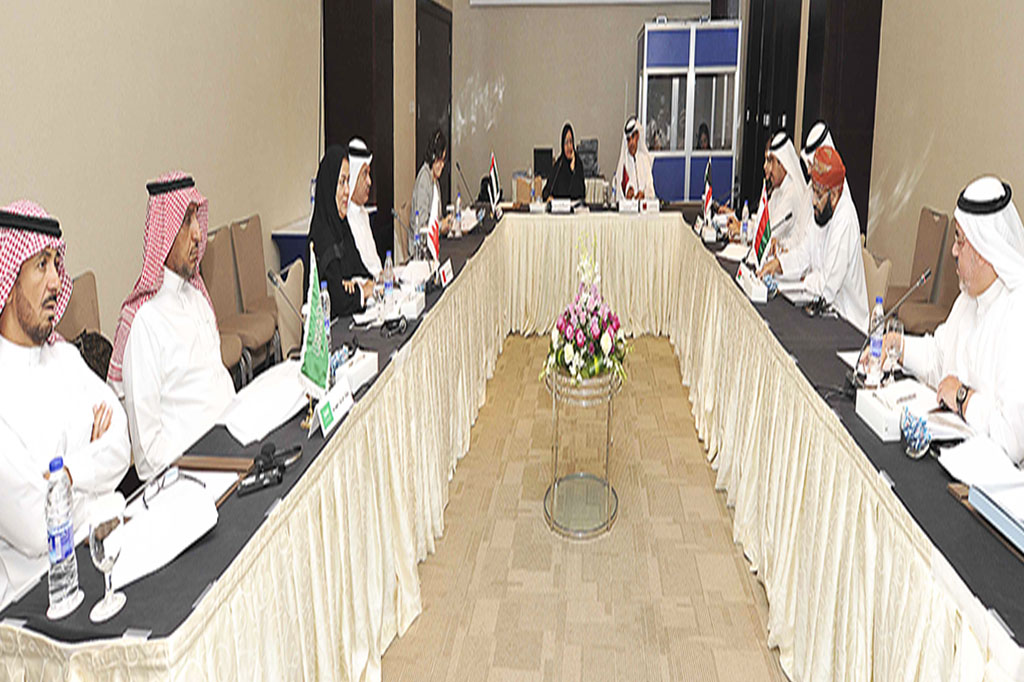
GCC 2020 Census Committee Conducts 1st Meeting
Muscat, 30 March 2014: Taking forward the efforts by official statistical departments in respective GCC states, the Statistical Centre for the Cooperation Council for the Arab Countries of the Gulf (GCC-Stat) recently conducted the first meeting for the GCC 2020 Census Committee at Holiday Inn Muscat. The meeting aimed to set the framework for a unified pan-GCC census scheduled for 2020 which was attended by official representatives from the statistical departments of respective GCC states.
Commenting of the commencement of the Committee’s work, H.E. Sabir bin Said Al Harbi, Director General of GCC-Stat, said: “This meeting is the foundation of collaborative efforts by all GCC statistical departments to provide cohesive statistics based on prescribed data by the official authorities in each of the six GCC countries. We are looking forward to collaborative and continuous statistical operations to ensure achievements of GCC-Stat’s objectives”.
The meeting highlighted efforts by GCC states during the 2010 Census and discussed ways of implementing and learning from the latest methodologies used regionally and internationally to ensure the success of the upcoming GCC 2020 Census. Participants discussed points presented by GCC-Stat on the proposed framework of the Committee, and agreed to share currently available data for further discussion during their next meeting in the fourth quarter of 2014.
Addressing the gathering, Faisal Al Thuwaini – Demographic Statistics Expert at GCC-Stat – said: “The collaborative efforts by GCC states and their respective statistical departments, as well as the various committees formed under the GCC umbrella, aim to conduct a unified official census that provides accurate demographic and economic data. Despite the challenges faced by the statistical authorities across the GCC region, the GCC 2020 Census will help official authorities in each individual GCC country in processing and updating their official databases and administrative records. It will also allow for a better flow of information between various government departments in a more dynamic, interactive and easily accessible way. The results of the GCC 2020 Census will provide prescribed database for concerned authorities and will be used by decision makers to set up future developmental plans.”
“The Committee discussed the current status of the data related to demography, building, and establishments in each country, and touched base on areas to be improved. Further cooperation was emphasised, and participants agreed on the necessity of establishing an electronic data processing system so to allow accurate data and information following best international statistical systems. This will serve as the official data pool for all official authorities in GCC countries,” added Al Thuwaini.
On its part, the Kuwait Central Statistical Bureau presented a report on the GCC member states’ efforts made during the 2010 census, followed by a brief from each country’s representatives the current status of collected data. Participants also discussed methods of data analysis and ways of common data processing. They also showcased various countries’ experiences in data collection and processing, including Denmark, Norway, Holland, Canada, Singapore and Bahrain. The meeting was concluded with a presentation by Huda Al Shrooqi - Acting Director of Demographic, Environmental and Social Statistics Directorate at the Central Informatics Organisation of Bahrain – who elaborated on the Bahraini experience, challenges and achievements during the 2010 Census.
















